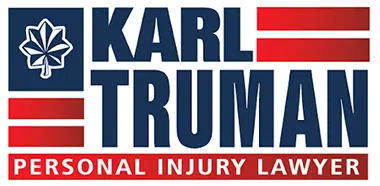Questions About a Workplace Injury?
Call an Experienced Work Injury Lawyer Today to Review Your Case and Explain Your Options for Seeking the Benefits You Deserve!

If you’re speaking with an insurance adjuster after a work-related injury, it’s a safe bet that they have you at a disadvantage. Sure, they may sound helpful and friendly, but you have to be prepared for workers’ comp adjuster tricks.
There are two big things you need to remember about this situation.
One, the workers’ comp adjuster is there to save insurance company money. When push comes to shove, they’ll almost certainly put the needs of their employer over those of the injured worker.
Two, while this is probably your first time navigating a workers’ compensation claim, the insurance adjuster has been in this situation before, perhaps dozens if not hundreds of times. They have a lot of practice talking to injured workers and guiding the conversation in ways that benefit the insurance company.
Every adjuster is different, but there are a number of common strategies they may use to try to reduce the value of your workers’ comp claim. But if you take the conversation seriously and know what to expect beforehand, you may be able to avoid these adjuster tricks.
RELATED POST: What Is the Workers’ Comp Process?


You should almost always say no to giving a recorded statement to a workers’ comp claims adjuster. Certainly, never agree to one before speaking with an experienced workers’ compensation attorney beforehand.
The insurance adjuster will probably try to give you the impression that the recording is just to avoid misunderstandings or make sure no information is forgotten. However, they’re also trained to ask leading questions and get you to lower your guard. If you misspeak, or say something that could be misinterpreted, the recording could be used by the insurance company to question your credibility and reduce (or even sometimes deny) your workers’ comp benefits.
Particularly unethical workers’ comp insurance adjusters may imply that if you don’t give a recorded statement your claim cannot continue. This is false. You do not have to give one to file a workers’ compensation claim or receive compensation.
Even if you refuse to give a recorded statement, the claims adjuster will still try to steer the conversation in ways that could poke holes in your workers’ compensation case.
For example, they could be trying get you to supply information that contradicts an earlier statement or video evidence, or get you to suggest that your pain or symptoms might stem from a previous incident.
Depending on the circumstances of your accident, you may not fully remember what happened, or the exact sequence of events, and it’s possible you’ll misspeak, misremember, or contradict yourself without actually trying to be dishonest. But even an innocent mistake might be enough to torpedo your claim.
When speaking with an adjuster:
The insurance company is entitled to review certain medical records to verify that your workplace injury is legitimate. However, they’ll often ask for a “blanket” authorization to review your full medical history, with no limits.
You may be led to believe that this is a formality that will eliminate red tape and make their investigation more efficient, but they’re probably more interested in two things:
You do not need to give the insurance company unrestricted access to your medical history and doctors. Ask them for specifics about what they need (dates, certain kinds of records). Carefully examine any medical authorization form before signing one—and you can always rescind a medical release. Better yet, let an experienced workers’ comp attorney handle this for you.
The insurance company generally can require you to submit to an independent medical examination (IME). Unlike the treating physician, the physician conducting the IME is only there to examine you and provide a second opinion about your injuries and your ability to work. Adjusters usually choose IME doctors who reliably side with them—and against you.
While you usually can’t refuse an IME, you need to be careful. The physician is being paid by the insurance company to be their “expert” regarding your workplace injury. So, while they are still (theoretically) bound by professional ethics to be honest in their assessments, they are also probably more likely to err on the side of minimizing the severity of your injuries, and they may not truly take the time to conduct a full, objective exam. In short, an “independent” medical examiner is not truly independent.
Some general tips here:
If you and your physician disagree about the conclusions of the IME, you’ll need to be able to dispute it with solid medical evidence of your own. This is another area where a good attorney can help connect you with the experts you need.


Workers’ comp laws vary from state to state—and Indiana and Kentucky’s rules are different. While you typically must be treated by a company doctor in Indiana, this is not the case in Kentucky.
If you have a Kentucky workers’ compensation case, you have the right to select your treating physician. They will be one who oversees your care and refers you to specialists (when needed). However, if your employer is part of a managed care network, you must pick an in-network physician.
Injured workers in Kentucky can also change their treating doctors one time without the insurance company’s approval. If you need to make additional changes, you must either get the insurance company’s or a workers’ comp judge’s consent.
But adjusters will try to steer you to a company doctor. They know that your medical records serve as powerful evidence, and a company doctor can help stack the deck against an injured worker.
There’s a reason insurance companies are fixated on this—it’s one of the best ways to fight off a workers’ comp claim, legitimate or otherwise. Not only does it give them an excuse to deny benefits, but a lot of Americans have diagnoses like degenerative disc disease and osteoarthritis.
It’s important to understand that, even if you have a pre-existing condition, that does not mean that you are ineligible for medical care and wage loss benefits from your employer’s workers’ comp insurance. If the accident triggered a condition or made it worse, you should still be covered for any new pain or symptoms directly linked to the workplace accident.
Do not let the insurance adjuster bait you into accepting that your pain is not work-related. Be clear and insistent about how the accident affected your symptoms.


Workers’ comp claim adjusters know that you’re in a tough spot. Medical bills may be piling up, you have no way to earn an income or buy basic necessities, and you’re desperate to get some cashflow going.
Unfortunately, this is leverage that insurance companies can use to try to settle your workers’ compensation claim for less than it’s truly worth. You may be desperate enough to take what’s being offered without doing your due diligence and double-checking the math.
Unfortunately, if you agree to an unfair workers’ comp settlement, and later discover you deserved more, it’s very unlikely that you’ll get a second chance. Better to take a little extra time to get a fair deal than to take the unfair deal that’s presented to you right away.
RELATED POST: Is My Workers’ Comp Settlement Fair?
Poor communication with workers’ comp adjusters is a constant source of frustration and stress for workers’ comp claimants. This could be because the adjuster you’re dealing with is overloaded, or not a good communicator in general. However, it also could be a deliberate stalling tactic designed to sap your energy and make you so frustrated you don’t fight back or check the fine print.
Try not to get emotional about the situation. Be polite and persistent. Keep asking, follow up in writing as often as necessary, and don’t hesitate to get an attorney involved.
One of the biggest tells that a workers’ comp adjuster is acting in bad faith is by using high-pressure tactics—for example, threatening to withdraw an offer if you don’t sign it within a set period of time.
But remember: this isn’t a used car sale. Unless new facts come to light, your case won’t suddenly be worth less tomorrow than it’s worth today. These tactics are nothing more than a cynical attempt to get you to take what’s being offered without taking time to think through the consequences.
RELATED POST: How Long Will my Workers’ Comp Case Take?
The last thing that the insurance company wants is for an injured worker to have strong, experienced legal representation.
The arguments that most adjusters will make is that a workers’ comp attorney will slow down the process and cut into your take-home benefits with high attorney fees. However, there are a few things you should know here.
One, hiring an attorney does not necessarily mean your workers’ compensation case will take longer to settle. Quite often, hiring an experienced workers’ comp attorney early in the process will actually make the claim go faster, because the attorney knows what to do and can work efficiently. And once again, speed shouldn’t be your top concern—it’s more important to take a little longer to get a fair workers’ compensation payout than to get an unfair one quickly.
Two, both Indiana and Kentucky (the two states where Karl Truman Law Office practices) place strict caps on attorney fees in workers’ compensation cases. In Indiana, the attorney fee is limited to 15-20 percent of the total judgement depending on the amount awarded (20% on the first $50,000, and 15% thereafter). Kentucky also starts at 20% with graduated phase-outs; in addition, a Kentucky workers compensation attorney cannot charge more than $18,000 total no matter how big the settlement is.
For most injured workers and their loved ones, hiring an attorney is absolutely worth it. Your lawyer will help you make sure you’re getting all the workers’ comp benefits you’re entitled to (which may be substantially more than what the insurance company initially offered). They also will take the stress and frustration of working through your claim off your shoulders, allowing you to focus on your recovery and your family.
When your employer and their insurance company want to play games at your expense, you need a credible, trustworthy, and experienced advocate who can protect you and fight for the full compensation you deserve for your lost wages and medical care.
The sooner you contact a workers’ comp lawyer to review your case and begin handling the claims process on your behalf, the less likely you are to fall for adjuster tricks or make costly errors in your statements, paperwork, or other aspects of your case. And, of course, the sooner you can take a deep breath, focus on your health and your personal life, and rest assured in the knowledge that a caring, experienced professional is taking on that challenge for you.
In the meantime, if you’re interested in learning more in depth information about the worker’s compensation process and how to avoid other common mistakes, be sure to request a copy of our free ebook, 10 Common Mistakes in Workers’ Compensation Claims for Indiana and Kentucky (and How to Avoid Making Them), using the simple request form on this page.
Karl Truman has dedicated his life to serving others—both as an attorney and as an officer in the United States Army. To request a free consultation with a workers’ comp attorney at Karl Truman Law Office, call our team at (502) 222-2222 or contact us via our simple online form.
References
Ky. Rev. Stat. § 342.320 (https://apps.legislature.ky.gov/law/statutes/statute.aspx?id=47622)
Ind. Code § 22-3-1-4 (https://codes.findlaw.com/in/title-22-labor-and-safety/in-code-sect-22-3-1-4.html)
The content provided here is for informational purposes only and should not be construed as legal advice on any subject.
















Disclaimer: Kentucky does not certify specialties in legal fields. The personal injury law information on this website provided by The Karl Truman Law Office is not meant to be taken as formal legal advice. If you need to speak with a personal injury attorney in the Louisville, Kentucky, or Jeffersonville, Indiana areas please contact us today.This website is not intended for viewing or usage by European Union citizens.
Terms & Conditions for SMS communication: Karl Truman Law Office will use SMS communications to contact those that have inquired about our services which include all practice areas listed on our site. Attempts to contact will cease after one month unless a case is accepted and signed with the Karl Truman Law Office, in which case we will continue to utilize our SMS feature for appropriate communications. Should there be any questions or concerns about our SMS communications, please call our office at 502.222.2222 or email us at [email protected]. You may opt out of these communications at any time by reply with STOP. Message and data rates may apply.
